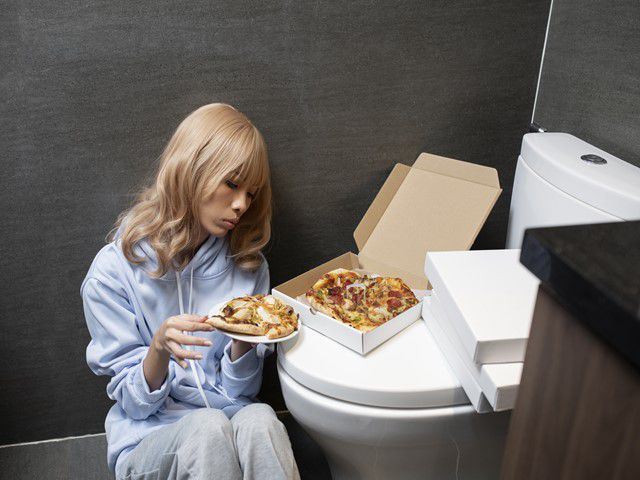The uncertainty of the COVID-19 pandemic has led to health fears and food shortages for all but has been especially triggering for those with eating disorders such as anorexia and bulimia nervosa or binge eating disorder.
In short: eating disorders and COVID-19 are the imperfect storms that thrive during the pandemic.
“We’re cut off from family and friends and support groups, gyms are closed, and we don’t go to the office or follow a regular routine,” said Lesley Williams, M.D., a family medicine physician and eating disorder specialist at Banner Behavioral Health. “People now have to suck it up and leave it to their own devices, which is certainly leading to unhealthy behaviors.”
With disrupted routines, isolation, fears about family and friends, and more time spent surfing social media, those struggling with an eating disorder may resort to bad habits to cope, such as restricting food, binge eating, and purging.
This is especially concerning to treating physicians like Dr. Williams, who recognize the lethal impact that life-altering events, such as the pandemic, can have on those struggling with this disorder. A review of nearly 50 years of research confirms that anorexia has the highest mortality rate of all mental disorders.
Progress in a Pandemic
For many, eating is a form of control. In March 2020, when food shortages and stockpiling behaviors began across the country, anxiety, and fear of eating or overeating increased among people with eating disorders. Food purchases had skyrocketed. Simply added food shortages and frenzied behavior became more difficult.
To add fuel to the fire, tips popped up on social media warning us about acquiring the “Crown15” during isolation. For those struggling with eating disorders, this warning also triggered anxiety and posed a risk of re-engaging in negative behaviors such as binge eating, skipping meals, and over-exercising.
“Look, during these times, it should be normal and healthy to want to eat some comfort foods instead of a salad,” Dr. Williams said. “This can be difficult when social media tells us what we should feel and look differently. It’s okay to normalize comfort food during this time.”
Ways to Maintain Balance During COVID-19
“People can recover from an eating disorder and have normal relationships with food,” said Dr. Williams. “However, stress and anxiety can cause our brains to revert back to old habits. It’s important to recognize triggers and seek support when needed.”
For those struggling to cope with an eating disorder or those noticing signs of a relapse, here are some ways to maintain balance.
Seeking Healthy Connections
“This seems to be a common thread for those who have had the most success during the pandemic,” Dr. Williams said.
Connections with others that are healthy, positive, and empowering are crucial for those struggling with an eating disorder, not just in times of uncertainty like these. Schedule a virtual meeting with friends and family or take a walk or hike with social distancing. Join an eating support group that offers helpful tips and tools that will be effective in helping you through this time. Participate in anti-diet and body-positive activities.
Limit Your Use of Social Media
When it comes to connections, many of us consider the tools of Twitter, Instagram, and Facebook to do so, but be careful. “There is a direct correlation between body image concerns and social media interactions,” warned Dr. Williams. “Not only are you inundated with idealistic images of how you’re supposed to look, feel and be, but even some of these memes or jokes make fun of the pandemic and weight gain falls short of this. We need to fight back.”

It’s easy to get caught up in social media. Check out the news and social media and set firm time limits. If you really want to “connect,” text, call, FaceTime, or even go old-fashioned or old-fashioned with a letter.
Create a New Routine and Schedule
Working from home, socializing from home, eating from home: it’s all at home these days. This can definitely trigger some new or old negative habits or behaviors.
Keep a regular schedule. Open your Google calendar (or a printed one) and set aside your day for meals, work, family time, moderate exercise, and personal time. Eat at regular intervals to ensure you get adequate nutrition and regain awareness of body cues, especially if stress affects your appetite. Join a meal planning support group to help you organize your meals and snacks for the week.
Talk to a Professional
Communicate with professionals in your area and make sure you receive as much support as possible during this time. Many therapists and specialists even conduct assessments, outpatient programs, and therapies via Telehealth/Teletherapy.
“If you have an eating disorder, life can be overwhelming even on your best day,” Dr. Williams commented. “If you can’t do it on your own, don’t hesitate to enlist the help of a trusted family member or friend to help you reconnect with support.”


